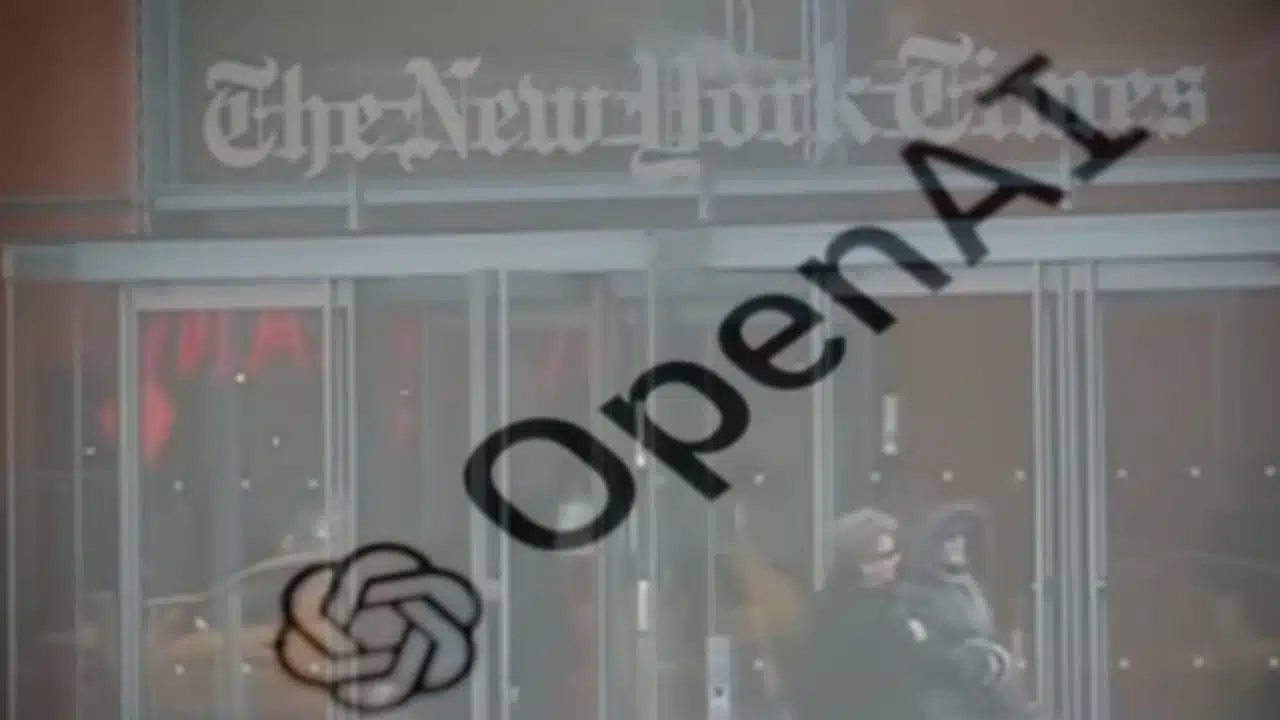A federal judge has ruled that The New York Times and other media outlets can move forward with a major copyright lawsuit against OpenAI and Microsoft. This legal battle centers around the alleged use of news articles to train AI tools like ChatGPT.
What the Lawsuit Is About
The New York Times, along with other newspapers, has accused OpenAI and Microsoft of using their articles without permission. These stories were reportedly used to train artificial intelligence systems that now power tools such as ChatGPT. The media companies argue this is a direct violation of copyright laws and threatens their business models.
According to the lawsuit, OpenAI’s AI models have sometimes repeated The Times’ content word-for-word. The Times claims this practice amounts to “widespread theft” of millions of its published works and could be worth billions of dollars.
Judge Allows Case to Move Forward
On Wednesday, U.S. District Judge Sidney Stein, based in New York, allowed the main copyright claims to continue. While he dismissed some parts of the case, he made it clear that the bulk of the arguments from the media organizations were strong enough to proceed.
Judge Stein did not yet explain his reasons for the decision but said he would do so “expeditiously,” meaning he plans to provide the explanation soon.
Responses from Both Sides
The New York Times Responds
The New York Times’ attorney, Ian Crosby, welcomed the decision. He emphasized that the heart of the case — the claim that Microsoft and OpenAI unlawfully used copyrighted materials — is still alive.
“As the order indicates, all of our copyright claims will continue against Microsoft and OpenAI for their widespread theft of millions of The Times’s works,” Crosby said.
Other Media Groups Join In
Frank Pine, executive editor of MediaNews Group and Tribune Publishing, also praised the judge’s decision. These companies are part of a consolidated lawsuit and own several newspapers involved in the case.
“The claims the court has dismissed do not undermine the main thrust of our case,” Pine said. “These companies have stolen our work and violated our copyright in a way that fundamentally damages our business.”
OpenAI’s Reaction
OpenAI, for its part, responded positively to the dismissal of some claims. The company stated that it uses publicly available data and operates within legal boundaries like “fair use.”
“We look forward to making it clear that we build our AI models using publicly available data, in a manner grounded in fair use, and supportive of innovation,” OpenAI said in a statement.
Microsoft Remains Silent
Microsoft, which is closely partnered with OpenAI, declined to comment on the court’s decision.
Why This Case Matters
This case could shape the future of how artificial intelligence is developed and how content creators are protected. If the court finds that OpenAI and Microsoft broke copyright laws, it could lead to new rules for how AI companies gather and use data.
At its core, this lawsuit is about balancing innovation with intellectual property rights. News organizations want to make sure their work isn’t used without permission, especially when it helps build products that could compete with or replace traditional journalism.
What’s Next?
The lawsuit may eventually head to a jury trial. Judge Stein’s upcoming explanation will provide more details on why certain claims were dismissed and why others are continuing.
For now, the main copyright battle is still on — and it could have big consequences for both the media and the tech industries.
The Information is Collected from CBS News and Yahoo.




































